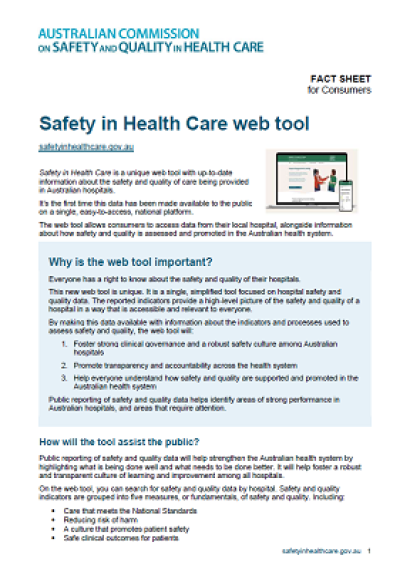The Commission has developed a series of fact sheets for consumers and carers about the NSQHS Standards (second edition) and the accreditation process.
The National Safety and Quality Health Service (NSQHS) Standards provide a nationally consistent statement of the level of care consumers can expect from health service organisations.
The Commission develops clinical care standards with advice from a multidisciplinary topic working group including clinicians, consumers and researchers.
PREMs are recommended as a resource to prioritise and inform local safety and quality improvement, to stimulate meaningful discussion with consumers, and to help organisations to keep track of their move towards patient-centred care.
Healthcare rights and informed consent
The Psychotropic Medicines in Cognitive Disability or Impairment Clinical Care Standard provides guidance to clinicians, healthcare services and consumers on the safe and appropriate use of psychotropic medicines.
This national standard was released by the Commission on 9 May 2024.
Good health information is important and can help you make informed decisions. These resources contain tips to help consumers find good health information online.
The Commission develops clinical care standards with advice from a multidisciplinary topic working group including clinicians, consumers and researchers. The membership and role of the COPD Clinical Care Standard Topic Working Group is described below.
Shared decision making involves discussion and collaboration between a consumer and their healthcare provider. It is about bringing together the consumer's values, goals and preferences with the best available evidence about benefits, risks and uncertainties of treatment, in order to reach the most appropriate healthcare decisions for that person.
This page lists a number of organisations who may be able to advise or support you if you have a question about your healthcare rights.






